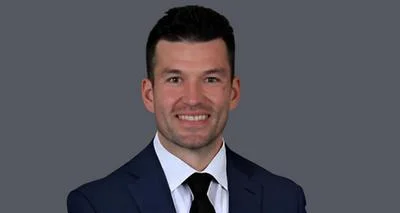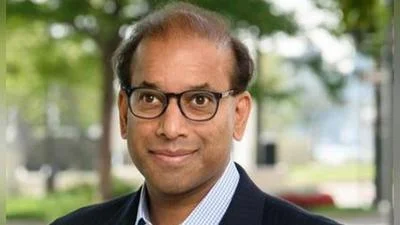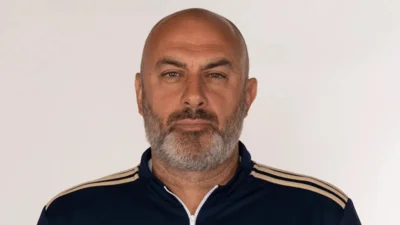City announces recipients of first 33 adult-use marijuana retail licenses under revised ordinance | City of Detroit
City announces recipients of first 33 adult-use marijuana retail licenses under revised ordinance | City of Detroit
The City of Detroit notified the first 33 successful applicants for adult-use marijuana retail licenses that they have been approved. The announcement is a milestone in the city’s journey toward establishing an adult-use marijuana industry since Michigan voters approved it four years ago.
Following an exhaustive independent review and scoring process over the past two months, the City’s Office of Marijuana Ventures & Entrepreneurship determined the following 13 non-equity applicants, and 20 equity applicants met all the necessary criteria to be awarded a license:
Equity Licenses
1. House of Zen 14501 Mack
2. LIV Cannabis 12604 E Jefferson
3. Motor City Kush 10 E 8 Mile
4. Liberty Cannabis 2540 Rosa Parks
5. High Profile 20327 Groesbeck
6. Chronic City 6810 E. McNichols
7. Plan B 20101 W 8 Mile
8. DaCut 12668 Gratiot
9. Blue Wave 1947 W Fort
10. The Remedy 20041 W 8 Mile
11. Cloud Cannabis 16003 Mack
12. Gage 313 14239 W 8 Mile
13. Detroit Herbal Ctr 14325 Wyoming
14. Nuggets 18270 Telegraph
15. Livernois Provision 8305 Livernois
16. Inhale 15670 E 8 Mile
17. TJM Enterprises 8600 E 8 Mile #28
18. The Herbalist 15510 W Warren
19. Ivy League 471 S Schaefer
20. SJTC Enterprises 6640 E 8 Mile
Non-Equity Licenses
1. Luxury Loud 2520 22nd
2. THC Detroit 19533 W Warren
3. Det Natural 3394 Fort
4. Jars Cannabis 11400 8 Mile
5. House of Dank 3340 E 8 Mile
6. SMOK 7461 W 8 Mile
7. Oz Cannabis 16829 Harper
8. MPP Services 2710 Livernois
9. West Coast Meds 8620 Lyndon
10. Cookies 6030 8 Mile
11. Southwest Meds 6237 Federal
12. Leaf and Bud 14470 Livernois
13. Playa Kind 8301 St. Aubin
The Office of Marijuana Ventures & Entrepreneurship has published a full listing of the applicants in all categories, along with their scores at www.homegrowndetroit.org.
Since voters approved the sale of adult use marijuana in Detroit three years ago, Mayor Mike Duggan's administration has worked closely with Council President Pro-Tem James Tate seeking equitable opportunities for Detroiters to participate in industry, estimated to yield $3 billion in annual revenue in Michigan by 2024.
"Our goal from the day voters approved the sale of adult use marijuana was to make sure we had a city ordinance and a process in place that provides fair and equitable access to these licenses and the courts have affirmed that we've done just that,” said Mayor Mike Duggan. “Council President Pro-Tem Tate, and our Department of Civil Right, Inclusion & Opportunity and Law Department deserve a great deal of credit for making this historic day possible.”
The City’s ability to accept applications was delayed in July after two separate lawsuits were filed following City Council approval of the modified adult-use marijuana licensing ordinance in April, and a judge temporarily halted the process before reversing course and upholding the City’s ordinance.
"I am thankful for Judge Friedman’s wisdom in ruling today against the Temporary Restraining Order that would have again prevented Detroit from moving forward with our current Adult-Use Marijuana Ordinance," said Council President Pro-Tem James Tate. "Three months ago, a Wayne County Circuit Court judge declared our ordinance “unambiguous” and “a fair licensing process”. Despite clear rulings issued by the courts, various plaintiffs continue their frivolous attempts to dominate the adult-use cannabis industry in the city in an effort to leave Detroiters and other Social Equity applicants out of the market. Hopefully today’s rejection resonates."
Not all applications met requirements
Under the ordinance, the City had the ability to approve up to 20 general applications and 20 social equity applications for retail licenses in Round One. In the social equity category, the 20 applicants with the highest total scores were approved for licenses. In the general license category, the 13 applicants with the highest overall score were approved for licenses. Because the next 20 applicants had a tied score that did not qualify for a lottery selection under the ordinance, the remaining 7 general licenses cannot be issued in this Round. Additionally, no applications received for the 10 Micro-Business and 10 Consumption Lounge licenses in Round One met all the requirements for approval.
The City ultimately intends to issue an equal number of general and equity retailer licenses by the end of its application rounds. Unsuccessful applicants for all license types, including Micro Business and Consumption Lounge licenses, in Round One may apply again in Round Two.
Below is a breakdown of the type of license available, along with total number of applicants and the number of licenses approved.
° Retail: Allows a business to sell marijuana and related products from licensed growers and processors to adult consumers for recreational purposes
13 non-equity applications approved
20 equity applications approved
50 non-equity applications received (20 available licenses)
40 equity applications received (20 available licenses)
° Micro-Business: Allows a small business to vertically integrate by growing and processing up to 150 plants and directly selling those products to adult consumers for recreational purposes
0 general applications approved
0 social equity applications approved
0 non-equity applications received (5 available licenses)
4 equity applications received (5 available licenses)
° Consumption Lounge: Allows a commercial location to host adults to consume marijuana products
0 general applications approved
0 social equity applications approved
0 non-equity applications received (5 available licenses)
3 equity applications received (5 available licenses)
To qualify as an equity applicant under the Detroit City Code, an applicant’s primary residence must be in community like Detroit that has been disproportionately impacted by marijuana enforcement, where at least 20% of residents live below the federal poverty level and the marijuana conviction rate is higher than the State of Michigan median of 660. A business that is at least 51% owned by such a person can also qualify as a social equity applicant.
The City of Detroit intends to award up to a total of 160 licenses: 100 retailer licenses; 30 total microbusiness licenses; and 30 total consumption lounge licenses over the course of three phases. By ordinance, the Round Two application period can begin as soon as 120 days after the Round One application period, with City Council approval. The number of licenses that may be awarded in Round 2 and Round 3 are as follows:
Round 2 (Date TBD)
Up to 30 Retail
Up to 10 Micro-Business
Up to 10 Consumption Lounge
Round 3 (Date TBD)
Up to 30 Retail
Up to 10 Micro-Business
Up to 10 Consumption Lounge
Original source can be found here.





 Alerts Sign-up
Alerts Sign-up